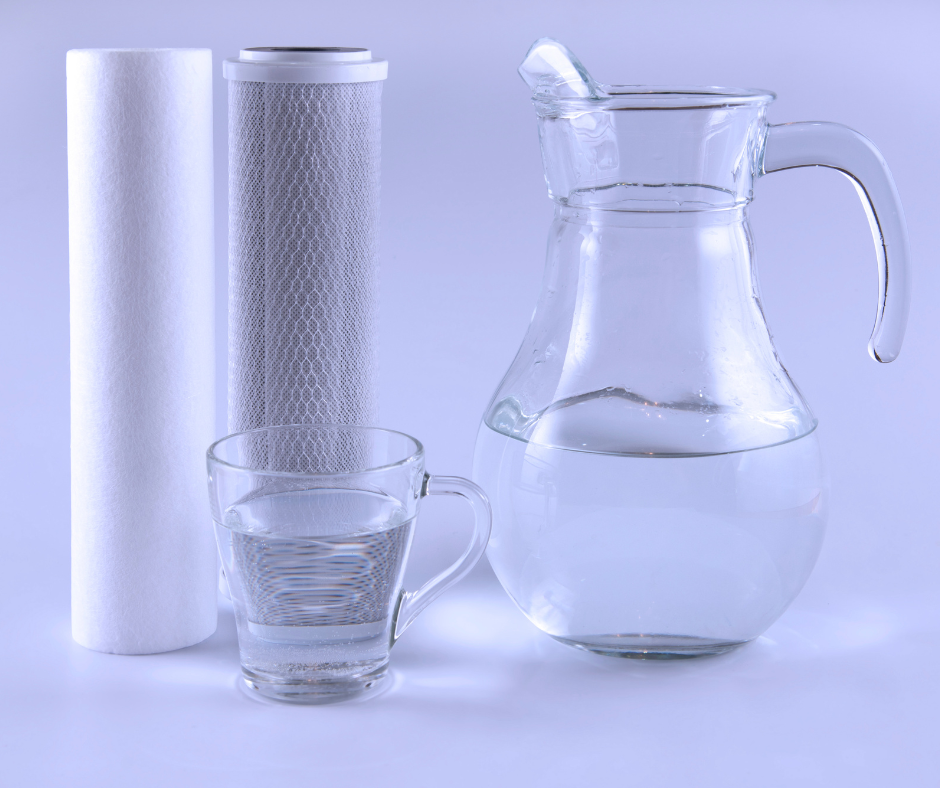Introduction
Many individuals have concerns about the quality of the water they consume. One popular method used to purify water is reverse osmosis (RO), but Is Reverse Osmosis Water Good For You? This article will explore the controversy surrounding RO water filters and the primary arguments against their use.
The Controversy Surrounding Reverse Osmosis (RO) Water Filters
Some people believe that RO water filters remove essential minerals from the water, making it less healthy to drink. These filters force water through a semi-permeable membrane to remove impurities, including minerals. While this process effectively cleans the water, it can also remove beneficial minerals like calcium and magnesium.
However, it’s important to note that the amount of minerals removed by RO filters is relatively small compared to the minerals we obtain from our diet. The World Health Organization (WHO) states that “drinking water should have low levels of dissolved solids,” including minerals, to prevent health problems such as kidney stones.
The Primary Argument Against RO Based On A WHO Study
One commonly cited study by the World Health Organization (WHO) suggests that drinking water with low mineral content can have negative health effects. The study examined the relationship between water mineralization and cardiovascular disease rates. However, it’s important to understand that this study focused on naturally occurring low-mineral water, not water that has gone through an RO filter.
Additionally, the study only found a potential correlation between low mineral content water and certain health issues. It did not establish a causal relationship or determine the health consequences of consuming low-mineral water.
It’s also worth mentioning that many health authorities and experts have stated that a balanced diet rich in minerals and other nutrients is a much more significant source of these essential elements than drinking water.
Understanding RO Water: Is Reverse Osmosis Water Good For You?
While the controversy surrounding ‘Is Reverse Osmosis Water Good For You?’, it’s crucial to consider several factors. First, RO filters effectively remove contaminants, providing clean and safe drinking water. Second, the loss of minerals through filtered water is relatively minimal compared to the overall mineral intake from our diet.
Ultimately, choosing an RO water filter depends on individual preferences and circumstances. An RO filter may be beneficial if you live in an area with poor water quality or have specific health concerns. However, it’s essential to consider supplementing your diet with mineral-rich foods or using mineral additives if you drink RO water regularly.
In conclusion, the debate regarding Reverse Osmosis Water continues. While some argue that removing minerals from water poses health risks, others maintain that the benefits of clean and safe drinking water outweigh the slight reduction in mineral content. As with any health-related decision, it’s important to consult experts and consider your needs and circumstances.
How Reverse Osmosis (RO) Works?
Have you ever wondered how reverse osmosis (RO) works? Reverse osmosis is a water filtration process that removes contaminants from water by forcing it through a semi-permeable membrane. This process effectively removes impurities such as suspended particles, dissolved solids, bacteria, viruses, and even some heavy metals.
The Process And Technology Behind RO Filtration
The RO filtration process involves several stages to purify the water thoroughly. Here’s a simplified breakdown of how it works:
- Pre-filtration: The water passes through a pre-filter that removes larger particles, sediments, and debris. This step helps prevent clogging of the RO membrane and enhances its lifespan.
- Reverse osmosis: The water is then forced through a tightly woven membrane that allows only pure water molecules to pass while trapping impurities. The membrane acts as a barrier, effectively removing contaminants from the water.
- Post-filtration: After the RO process, the purified water goes through a post-filter to further enhance its taste and remove any remaining impurities that may have passed through the membrane.
- Storage: The clean, purified water is then stored in a tank, ready for consumption.
The Effectiveness Of RO In Removing Dissolved Salts And Minerals
One common concern with reverse osmosis water is the removal of essential minerals. While reverse osmosis is highly effective in removing impurities, it can potentially reduce the mineral content in the water. Some minerals, such as calcium, magnesium, and potassium, benefit our health and are found naturally in water sources.
However, it’s important to note that the human body receives minerals from various sources, including food. While reverse osmosis water may have a lower mineral content, it does not necessarily contribute significantly to mineral deficiencies in the body.
Additionally, some argue that the consumption of RO water may have health benefits, as it eliminates potentially harmful contaminants, such as lead, arsenic, and fluoride, which can be found in tap water.
Ultimately, deciding to drink reverse osmosis water depends on personal preference and individual circumstances. If you are concerned about mineral intake, consider adding mineral supplements or consuming a balanced diet that includes mineral-rich foods.
In conclusion, reverse osmosis effectively purifies water, removes impurities, and provides safe drinking water. While it may reduce the mineral content in water, its ability to eliminate harmful contaminants makes it a popular choice for many households. It’s essential to weigh the pros and cons and consider your needs when deciding whether reverse osmosis water is right for you.
Pros And Cons Of Reverse Osmosis (RO) Water Filters
Reverse Osmosis (RO) water has become increasingly popular as a drinking water option in recent years. But Is Reverse Osmosis Water Good For You? Let’s dive into the pros and cons of RO water filters to gain a better understanding.
Pros Of RO Filters In Producing Pure Drinking Water
One of the primary advantages of RO filters is their ability to produce pure drinking water. Here are some key benefits:
- Removes impurities: RO filters effectively remove contaminants such as chlorine, lead, sodium, arsenic, fluoride, and other dissolved solids. This purification process ensures that you are consuming clean and safe water.
- Improved taste and odor: By filtering out impurities, RO filters can significantly enhance the taste and odor of your tap water. The removal of chlorine, in particular, can make a noticeable difference, resulting in fresher and more pleasant-tasting water.
- Convenience: Installing an RO filtration system at home provides convenient access to purified water. This eliminates the need for purchasing bottled water and contributes to a more eco-friendly lifestyle.
Cons Of RO Filters In Removing A Wide Range Of Contaminants
While RO filters excel in purifying drinking water, there are a few drawbacks worth considering:
- Wastewater production: RO systems generate wastewater during the filtration process. For every gallon of purified water produced, a significant amount is wasted, which may increase water consumption.
- Removal of beneficial minerals: RO filters remove harmful contaminants and essential minerals, such as calcium and magnesium. While these minerals can be obtained from other dietary sources, it’s important to acknowledge this potential loss.
- Slow filtration rate: RO filters can be slower than other water filtration methods. This is due to the multiple stages of filtration required to achieve a high level of purification. Patience may be required when waiting for filtered water.
Potential Negative Health Impacts Of RO Water
Some concerns have been raised regarding potential health impacts associated with the consumption of RO water. However, it’s important to note that these concerns are not universally agreed upon within the scientific community. Here are a few points to consider:
- Mineral deficiency: As mentioned earlier, RO water may lack essential minerals. While this deficiency can be rectified through a balanced diet, it’s worth considering the overall mineral intake from various sources.
- Acidity: RO water typically has a slightly acidic pH, which some argue may affect the body’s pH balance. However, this is a topic of ongoing debate, and the impact of slightly acidic water on overall health is still not fully understood.
- Overall health impact: The potential health risks associated with consuming RO water are still a subject of ongoing research. It’s crucial to consult with healthcare professionals and consider individual sensitivities or pre-existing conditions when deciding water consumption.
In conclusion, reverse osmosis water filters have their pros and cons. While they effectively remove contaminants and improve the taste of tap water, they also have some drawbacks, such as the production of wastewater and the removal of beneficial minerals. Further research is needed to reach a consensus regarding potential negative health impacts. It’s always advisable to consider your specific needs, consult experts, and make informed decisions about your drinking water choices.
Best Alternatives To Reverse Osmosis (RO) Water Filters
Exploring Alternative Water Purification Technologies
Are you fenced about using a reverse osmosis (RO) water filter? While it is true that RO systems can effectively remove a wide range of contaminants from your drinking water, they may not be suitable for everyone. Luckily, there are several alternative water purification technologies that you can consider. Let’s explore some of them below:
- Activated carbon filters: These filters use activated carbon to absorb impurities and improve the taste and odor of your water. They effectively remove chlorine, volatile organic compounds (VOCs), and some heavy metals. Activated carbon filters are inexpensive and do not waste water like RO systems.
- Ultraviolet (UV) disinfection: UV disinfection systems use ultraviolet light to kill bacteria, viruses, and other microorganisms in the water. They are chemical-free and provide an additional layer of protection against waterborne pathogens. However, UV systems do not remove other contaminants like chemicals or heavy metals.
- Ion exchange filters: These filters remove dissolved ions from the water and exchange them with other ions, such as sodium or potassium. Ion exchange filters commonly soften hard water by removing calcium and magnesium ions. They are ineffective at removing contaminants, so that they may be combined with other filtration technologies.
Considering Other Brands And Filtration Methods
If you are still not convinced about the efficacy of RO water filters, it might be worth considering other brands and filtration methods. Remember that not all RO systems are created equal; some may be more efficient or better suited for your needs. Here are a few factors to consider:
- Water wastage: Some RO systems waste significant water during filtration. Look for systems with higher water efficiency ratings to reduce water wastage.
- Mineral retention: RO systems can remove beneficial minerals along with contaminants. Consider systems that have a remineralization stage to add back essential minerals for better-tasting water.
- Certifications: Look for RO systems certified by reputable organizations like the NSF (National Sanitation Foundation) to ensure that they meet rigorous standards for contaminant removal.
- Consider other filtration methods: If you are concerned about the potential drawbacks of RO systems, you might want to explore other filtration methods, such as distillation or ceramic filters. These methods have their pros and cons, so research each option carefully.
In conclusion, while reverse osmosis water filters can effectively remove contaminants from your drinking water, they may not be the best choice for everyone. Exploring alternative water purification technologies like activated carbon filters, UV disinfection, and ion exchange filters can provide viable options. Additionally, considering other brands and filtration methods can help you find an RO system that suits your needs and preferences. Remember to weigh the pros and cons of each option and choose the one that aligns with your drinking water requirements.
FAQ about Reverse Osmosis Water: Crystal Clear or Controversial?
Q: What is reverse osmosis water?
A: Reverse osmosis (RO) water is produced by removing impurities and contaminants from tap water by pushing it through a semi-permeable membrane. The result is water that is free from various minerals, chemicals, and bacteria.
Q: Is reverse osmosis water safe to drink?
A: Yes, reverse osmosis water is generally considered safe to drink. The RO filtration process effectively removes many potentially harmful contaminants, ensuring high purity. However, it’s important to note that some beneficial minerals are also removed in the process.
Q: What are the benefits of reverse osmosis water?
A: Reverse osmosis water offers several benefits. It provides clean and pure drinking water by removing impurities like chlorine, lead, and other harmful substances. RO water also improves the taste and odor of tap water, making it more enjoyable for consumption.
Q: Does reverse osmosis water remove beneficial minerals?
A: Yes, reverse osmosis water removes some beneficial minerals and contaminants. These minerals, such as calcium and magnesium, are essential for our body’s optimal function. However, a healthy and varied diet can compensate for lost minerals adequately.
Q: Is reverse osmosis water acidic?
A: Reverse osmosis water is generally neutral but tends to be slightly acidic due to the removal of alkaline minerals. However, the acidity level is usually minimal and unlikely to impact your overall health significantly.
Q: Should individuals with mineral deficiencies avoid reverse osmosis water?
A: Individuals with specific mineral deficiencies might prefer water that contains more minerals. In such cases, they can consider remineralizing RO water by adding minerals to achieve the desired balance.
Q: Does reverse osmosis water taste better than tap water?
A: Many people find reverse osmosis water taste significantly better than tap water. The removal of impurities results in a cleaner and fresher taste. Moreover, the absence of chlorine and other chemicals often eliminates unpleasant odors.
Q: How can reverse osmosis water be obtained for daily use?
A: Reverse osmosis water can be obtained by installing a home RO system or by purchasing pre-packaged RO water from stores. Home systems are convenient for households, while bottled RO water is readily available for on-the-go use.
Q: Does reverse osmosis water waste a lot of water?
A: The reverse osmosis process typically produces one gallon of purified water for every three to five gallons of wastewater. While this may seem like a lot of waste, it is commonly accepted as a trade-off for the benefits of clean drinking water.
Q: Is there anything to be aware of when using reverse osmosis water?
A: It’s worth noting that the efficiency of a reverse osmosis system depends on proper maintenance. Regularly replacing filters, monitoring pressure, and following the manufacturer’s instructions are essential to ensure optimal performance and water quality.
Conclusion
Evaluating The Benefits And Risks Of Drinking RO Water
Now you should know ‘Is Reverse Osmosis Water Good For You?’. Reverse Osmosis (RO) water has gained popularity as a means of obtaining purified drinking water. It uses a filtration system that removes impurities, contaminants, and minerals from tap water, producing crystal-clear, odorless water. While RO water has its advantages, it also has some drawbacks.
The benefits of drinking RO water include the removal of harmful substances like lead, arsenic, and certain bacteria. These contaminants can have detrimental effects on health when consumed over time. By removing them, RO water provides peace of mind, especially for those living in areas with poor water quality.
On the other hand, some argue that RO water may also remove beneficial minerals like calcium, magnesium, and potassium, which are essential for proper bodily functions. However, it’s important to note that these minerals can also be obtained from other dietary sources, such as fruits, vegetables, and supplements.
Making An Informed Decision Based On Individual Needs And Circumstances
When deciding whether RO water suits you, it’s crucial to consider your individual needs and circumstances. If you live in an area with contaminated water sources or have specific health concerns, drinking RO water may be beneficial.
However, if you live in an area with high-quality tap water or rely on other sources of mineral intake, such as a balanced diet, the need for RO water may be less significant. Assessing your situation and consulting a healthcare professional with any concerns is essential.
Final Thoughts On The Controversy Surrounding RO Water Filters.
The controversy surrounding RO water primarily stems from the potential removal of beneficial minerals and the environmental impact of the filtration process. While it’s true that RO systems can produce a significant amount of wastewater, advancements in technology have resulted in more efficient and sustainable RO systems available on the market.
To address the concern of mineral loss, some RO systems come with remineralization filters, which add essential minerals back into the purified water. Individuals can also supplement their diet with mineral-rich foods and beverages if they are concerned about a potential mineral deficiency.
In conclusion, choosing RO water should be based on carefully evaluating the benefits, risks, and individual circumstances. When making this decision, it’s important to consider water quality, health concerns, and environmental impact. Consulting with a healthcare professional and doing thorough research can help individuals make informed choices regarding their drinking water source.

Deb Carlson at Crosslake Coffee: Join Deb at Crosslake Coffee for a delightful blend of community, caffeine, and creativity. Discover the cozy ambiance and warm hospitality that make this local coffee shop a beloved gathering spot. From expertly crafted espresso drinks to mouthwatering pastries, Deb invites you to savor every sip and bite. Stay connected with the latest updates on specials, events, and live music performances by following Deb Carlson at Crosslake Coffee on social media. Embrace the vibrant online community and share your love for great coffee and good company with fellow enthusiasts. Don’t miss out on a moment of the Crosslake Coffee experience – connect with Deb on social media today.



